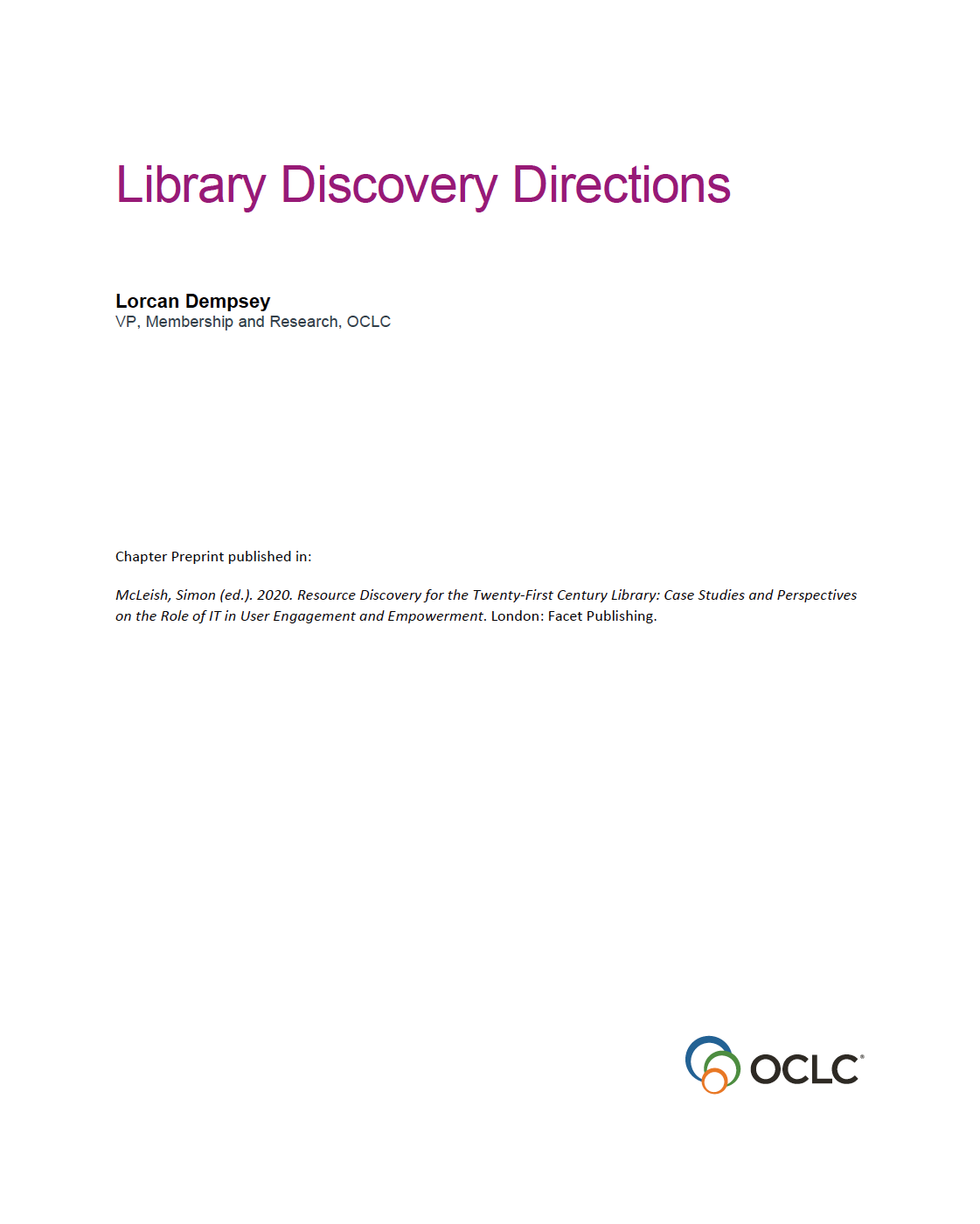User Research
Libraries are impacted by the ways in which individuals engage with technology; how they seek, access, contribute, and use information; and how and why they demonstrate these behaviors and do what they do. We're collaborating with librarians to shape their services around a set of expectations that have been influenced by consumer technologies and modern research and learning environments. By providing the library community with behavioral evidence about individuals’ perceptions, habits, and requirements, we can ensure that the design of future library services is all about the user. Our efforts are amplified by strategic partnerships and focus in these two areas:
Publications

Library Discovery Directions
29 June 2020
Lorcan Dempsey
In this foreword to the edited collection Resource Discovery for the Twenty-First Century Library (2020), Lorcan Dempsey traces shifting trends in the library discovery environment contributing to the diversified scope of resource discovery.

Call to Action: Public Libraries and the Opioid Crisis
26 February 2020
Scott G. Allen, Larra Clark, Michele Coleman, Lynn Silipigni Connaway, Chris Cyr, Kendra Morgan, Mercy Procaccini
OCLC has partnered with the Public Library Association (PLA) to issue Call to Action: Public Libraries and the Opioid Crisis, a report that offers strategies for public libraries to consider as they determine a local response to the nationwide opioid crisis. This is the culminating output from the IMLS-funded project Public Libraries Respond to the Opioid Crisis with Their Communities.

Science and News: A Study of Students’ Judgments of Online Scientific News Information
13 January 2020
Tara Tobin Cataldo, Kailey Langer, Amy G. Buhler, Samuel R. Putnam, Rachael Elrod, Ixchel M. Faniel, PhD, Lynn Silipigni Connaway, PhD, Christopher Cyr, PhD, Brittany Brannon, Joyce Kasman Valenza, PhD, Erin M. Hood, Randy A. Graff, PhD
This paper explores how students judge scientific news resources, as they might find through a Google search. The data were collected as part of an Institute of Museum and Library Services (IMLS) funded project.

Authority, Context and Containers: Student Perceptions and Judgments When Using Google for School Work
7 May 2019
Tara Tobin Cataldo, Kailey Langer, Amy G. Buhler, Samuel R. Putnam, Rachael Elrod, Ixchel M. Faniel, PhD, Lynn Silipigni Connaway, PhD, Christopher Cyr, PhD, Brittany Brannon, Joyce Kasman Valenza, PhD, Erin M. Hood, Randy A. Graff, PhD
What really happens when student researchers meet a Google results page? How do students determine the authority behind each result? News, blogs, journals, Wikipedia, websites, e-books--with the vast array of online content available, how do students differentiate between them? Better still, do they differentiate between them or are these format agnostic students stymied by container collapse? The Researching Students’ Information Choices (RSIC) project is answering these questions.